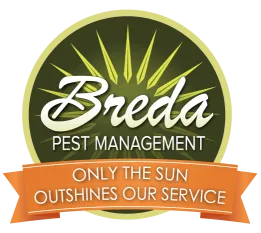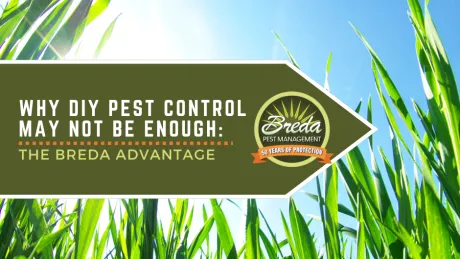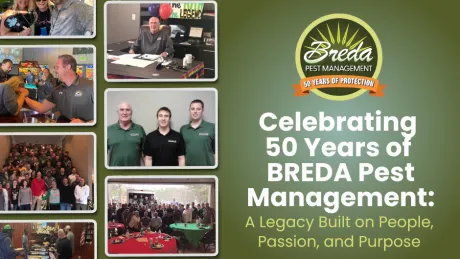There are more than 200 species of squirrels found around the world. In metro Atlanta, two squirrels are responsible for the majority of havoc wreaked on homes: The flying squirrel and the gray squirrel. This post will show you how to protect your attic from grey squirrels.
Gray squirrels are herbivores who feed on acorns, seeds, and the leafy growth of plants and trees. While they typically live high in trees in leafy nests, they will, from time to time, find their way inside. Squirrels can be adorable little creatures — when they're outside. However, when they try to make it into your home, they can cause some serious damage.
Not only can grey squirrels damage your property value, but they may carry plenty of different diseases that can be harmful to you and your family. Thankfully there are plenty of preventative measures you can take to ensure protection for your home and family.
1) Inspect Your Property And Seal Holes
The first step that you should take when attempting to prevent a squirrel infestation is to inspect your property.
Performing routine checks on your home and around your property are crucial when it comes to preventing a squirrel infestation. You want to look for things that give squirrels access to any unprotected areas of your home. Generally, the roof and attic are both susceptible to squirrel infestation. Overhanging tree limbs, clotheslines for laundry, and stacks of firewood are all things that can give squirrels easy access to your home.
Scan for holes, cracks, and any other types of openings that will allow for a squirrel to sneak into your home. Squirrels are attracted to any sort of openings in the walls of your home because they make good places for nesting their newborns. The insulation behind the drywall is warm and comfortable for squirrels. Since squirrels can fit into holes as small as 1.5 inches, it is very important to scan for possible openings regardless of how big or small they are. It's important to get into your attic to look for points of entry. You can sometimes spot these if you see light coming through from the outside.
If you find holes that seem like prime suspects for potential squirrel entrances, make sure you seal them before they become inhabited. If you have any roof holes that shouldn't be there, then those are obvious repairs to cover and patch those up. Vents can be secured by galvanized steel if they appear to pose a problem. Squirrels have strong teeth, which can also cause some holes chewed in your timber. You can easily patch and reinforce these holes with galvanized steel coverings to prevent squirrel entry into these holes. Steel mesh and wiring is easy for squirrels to chew through.
2) Remove Food Sources
Make sure there are no food sources that may tempt squirrels to come into your home. Garbage, bird feeders, outside pet dishes, flowerbeds, and uncovered food in the house may encourage unwanted squirrels to inspect or invade your home.
Bird feeders are probably the most well-known source of food that may attract squirrels. Fortunately, there is a variety of squirrel-proof bird feeders on the market that will help in reducing your squirrel problem. Another possible source of food that may attract squirrels are flowerbeds with edible seeds and bulbs. It is recommended to plant non-edible flowers to prevent squirrels from scavenging or digging in search of food. Some non-edible flowers are: alliums, crocus, lilies, marigolds, hyacinth, and daffodils.
3) Limit Access to Home and trees
- Remove objects from the sides of your home - If you have a stack of firewood that leans against your home, you should probably move it to where the squirrel does not have a way to climb the walls of your home.
- Apply gutter guards - This will keep squirrels from taking advantage of the gutters to get inside of your home.
- Trim tree limbs - trimming limbs that hang over or near your home will prevent a potential path to your roof for the squirrels. Squirrels can jump up to 10 ft, so be sure to trim branches more than 10 ft away from your home.
- Guard your trees - Fasten a band of sheet metal six to eight feet high around each tree trunk to keep squirrels from running up your trees. While this is unsightly, it will make it much harder for squirrels to make nests and move around your yard.
4) Use Commercial Squirrel Deterrents
Repellents generally don't work once squirrels have already infested your home, but they do work well as preventative measures in combination with other preventative methods. There are plenty of different types of chemical squirrel deterrents on the market. It is recommended to use a non-toxic deterrent for health reasons. There are also non-toxic varieties that include predator urine that scare the squirrels away from any areas that contain any scent that implies the presence of a predator. Taste irritant based repellents usually work better than scent-based repellents. Motion sensing sprinklers can also scare squirrels away from flowers and off of your roof.
5) Act Preemptively
Summer is the perfect time to seal up your home, because most attics are too hot for squirrels to live in during this time of year. Therefore, you'll be sealing them out — not in. Further, they won't have babies there, so they'll have less incentive to burrow back in. While you can seal up entry points yourself, it's much preferable to have a qualified pest control company do the job.
6) Get Professional Help
At Breda, we use heavy-gauge, custom-made galvanized metal flashing to properly seal your entry points and keep squirrels from returning. We're so confident of the quality of workmanship and service we provide that we guarantee it for a lifetime. Our family-owned business has been serving the Atlanta area for over 40 years. We'd like to have the opportunity to serve you. Our experienced, certified Atlanta professionals will inspect your house using infrared cameras to find out how they're getting in. After removing the squirrels, they will seal or close all of the entry points, fix the damage caused by the critters and disinfect the area. Request a free consultation today to speak to a professional about your squirrel problem.




